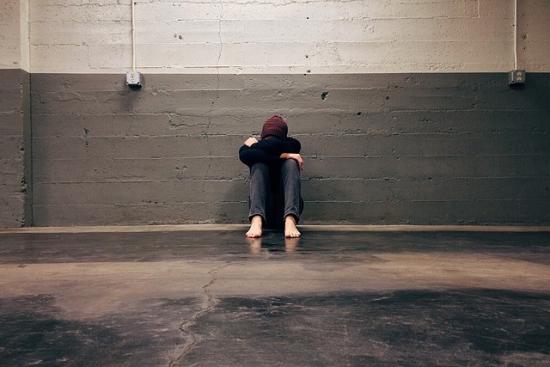
While I think encouragement is one of the greatest gifts you can give a person, there’s a thread of it in today’s Christian culture that I find troubling.
It’s an encouragement that guarantees that if a believer has enough faith, God will heal them from all maladies, protect them from all harm and give them the victories they want. I see it in Christians who say “don’t speak it” when someone worries about a trouble coming in their life — as if our words can subvert God’s will. I see it in Christians who urge the sick to put their faith in miraculous healing and sometimes even avoid doctors because “faith is the only medicine we need.” And I see it in Christians who blindly guarantee an end to struggles and striving, as if the avoidance of pain and the presence of success in the here and now is what we’re promised. This is commonly thought of as Prosperity Gospel, but I’ve heard it spoken even by friends who are aware of that doctrine’s fatal flaws.
I don’t doubt the intentions of these Christians — they mean well. The problem I have is that these promises aren’t true or biblical — indeed, they’re the opposite of what we read in biblical accounts. We’re promised that a life of following Christ is one where we are guaranteed suffering. We’re told that it’s through trials and tribulations that we’re formed into God’s image. We’re promised by Christ that no servant is greater than His master — and if anyone had a right to avoid suffering, it was Christ.
This idea that God is required to stop the suffering of the faithful is dangerous because it tempts Christians to avert their eyes from the true goal of suffering. They look to an end of their pain and heartbreak instead of taking heart in the promise that God will be glorified as we are in the crucible. It’s an offensive teaching that implies that those who don’t get “delivered” from their physical, emotional and spiritual struggles lack the faith to please God. If only they truly had enough faith, that line of thought says, God would have delivered them. And that just doesn’t square with what I read in Scripture or what I’ve seen in the lives of friends and acquaintances who have glorified God in the midst of terminal illness or times of deep despair, knowing that miracles are possible but not promised and that the true goal is not our physical rescue, but God’s glorification.
Almost as dangerous is the old canard: God will never give you more than you can handle.
It’s a nice enough platitude and, like the others, it’s well-intentioned. And we offer it believing that there’s even a Biblical basis behind it.
The problem? There’s not. As the post linked to above states, the passage this phrase is pulled from is a promise that there will not be a temptation given to us that we cannot bear — we will always have the choice of trusting God instead of following through on our sin. He will give us a way out of that.
But suffering? We’re promised suffering. It’s our heritage. And many of the heroes of our faith have cried out to God that the pain was more than they can handle.
We like to give this promise because it sounds like hope — you will overcome this. You have the strength to do this. But the more I wrestle with this, the more I see that I speak these words not out of confidence but out of fear. I want this so desperately to be true because I don’t want there to be a place where I’m brought to the end of my strength, sanity, capabilities or control.
But what is the Christian life if not a process of learning to give up all of those things?
Isn’t the truth of the Gospel that we never had the strength to save ourselves and needed outside intervention? And isn’t sanctification how we burn away this self-reliance and learn to glorify God, hope in Him and let His will be done? If so, doesn’t it make sense that His way of making us more like Him and letting us see His glory would be that He allows us to be brought into situations where we’re brought to the end of ourselves? Where we hit a wall and realize “I’ve got nothing left,” and understand there is no other option?
It terrifies me to speak these words, because I so desperately don’t want to be brought to the end of myself. I think about being ravaged by sickness, weak and helpless, and I want to say “God will help me avoid that.” I think of losing my wife and children and I want to believe God would never let that happen. I think of all the blessings I have — my health, a roof over my head, a great family — and I’d love to believe that God’s will is that I will always have them, so long as I put my faith in Him. I pray and hope God will spare me from tragedy, but I say that realizing that I don’t know what’s best for me. I don’t have control over the universe, and my temporal happiness is not the central story in this world.
God could take these things away. God could — and sometimes does — allow us to encounter more than we can handle. The mark of faith is not whether a person avoids these moments of intense suffering, but how they react in them.
Because in those moments, it’s tempting to give up, lose hope, curse God and ask to die. As I sit here and think about that, that I remember 1 Corinthians 10:13, that no temptation will be given to me that is more than I can bear. I may be brought to the end of myself, but the promise is that hope doesn’t die.
Paul said that in our weakness, God is strong. Sometimes God allows us to be brought to the end of ourselves to show us just how incapable we are and how great He is. That doesn’t mean He’s going to remove our suffering. It doesn’t mean He’s going to swoop in, heal us or return what we’ve lost. What He promises is that in that illness, in that suffering and in that loss, He is still our hope, our reason for joy and our source of strength. We might lose everything — even our loved ones, our possessions or our lives — but the hope of Christians is that God is sovereign and good, and that even through our loss, He gets the glory. To those who don’t share our faith, it looks like foolishness — and even as I type these words I wonder how deeply I truly believe it. But the hope of Christians is in the goodness and sovereignty of God and our hope that this doesn’t get shaken no matter how tumultuous our lives become.
But this thought also reminds me of the great responsibility given to the Church. Because those around us will often be brought into situations greater than they can handle. And rather than speak empty platitudes that sound good but are theologically empty, we have to be willing to enter into the suffering of those we love. I need to remember that the greatest encouragement that I can give another is not to tell them, “God’s allowing you to go through this because He knows you can handle it,” but to come alongside them and say “you’re right: you can’t handle this. But God will. And, as far as I am able, I will as well.” Just as Christ needed Simon to help him carry His cross, we need to be Simon to our fellow cross-bearers…even if we can’t get them all the way there on our own strength.
When Christians are brought to the end of their strength, the Church need to be willing to help them stand — even if it calls us into suffering, and brings us to an end where we all realize that no one but God can ultimately handle this. Sacrificial encouragement is something we don’t hear enough about these days.













